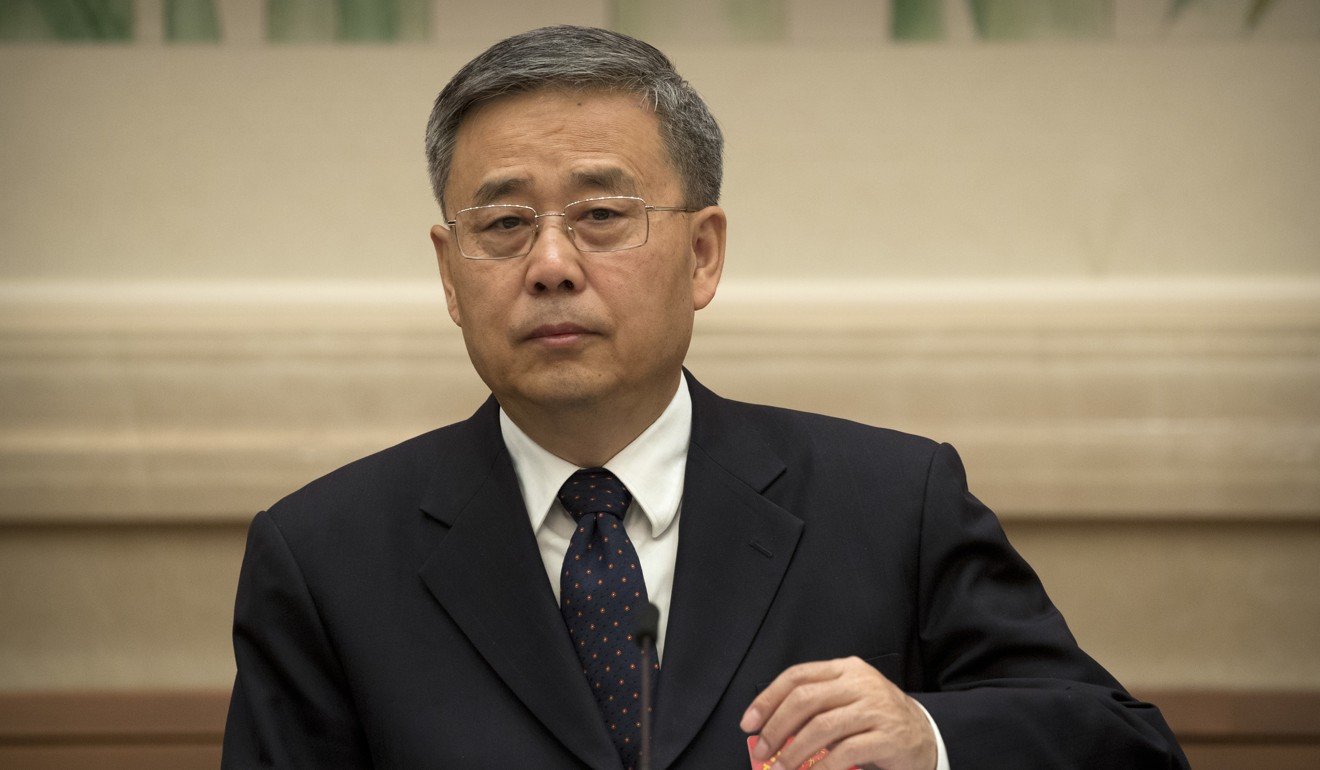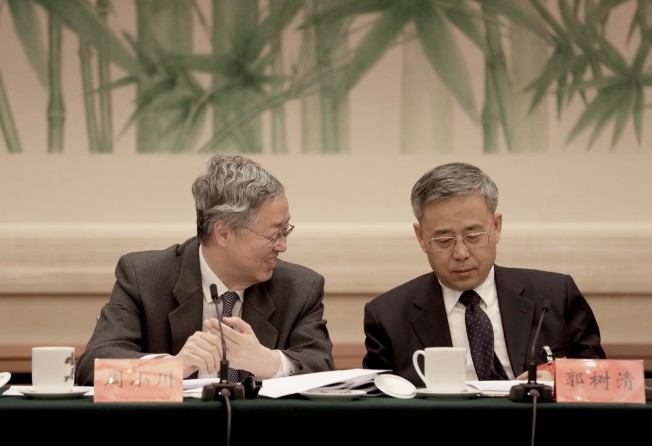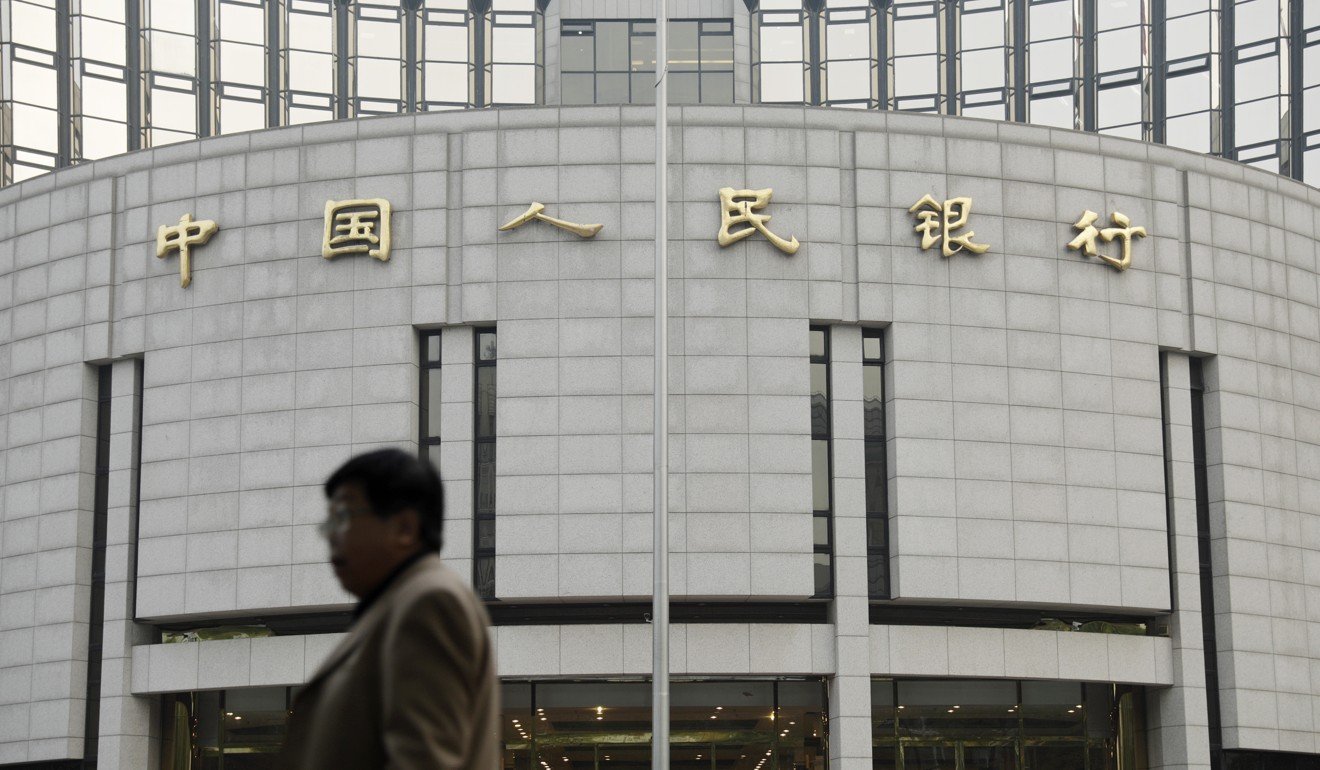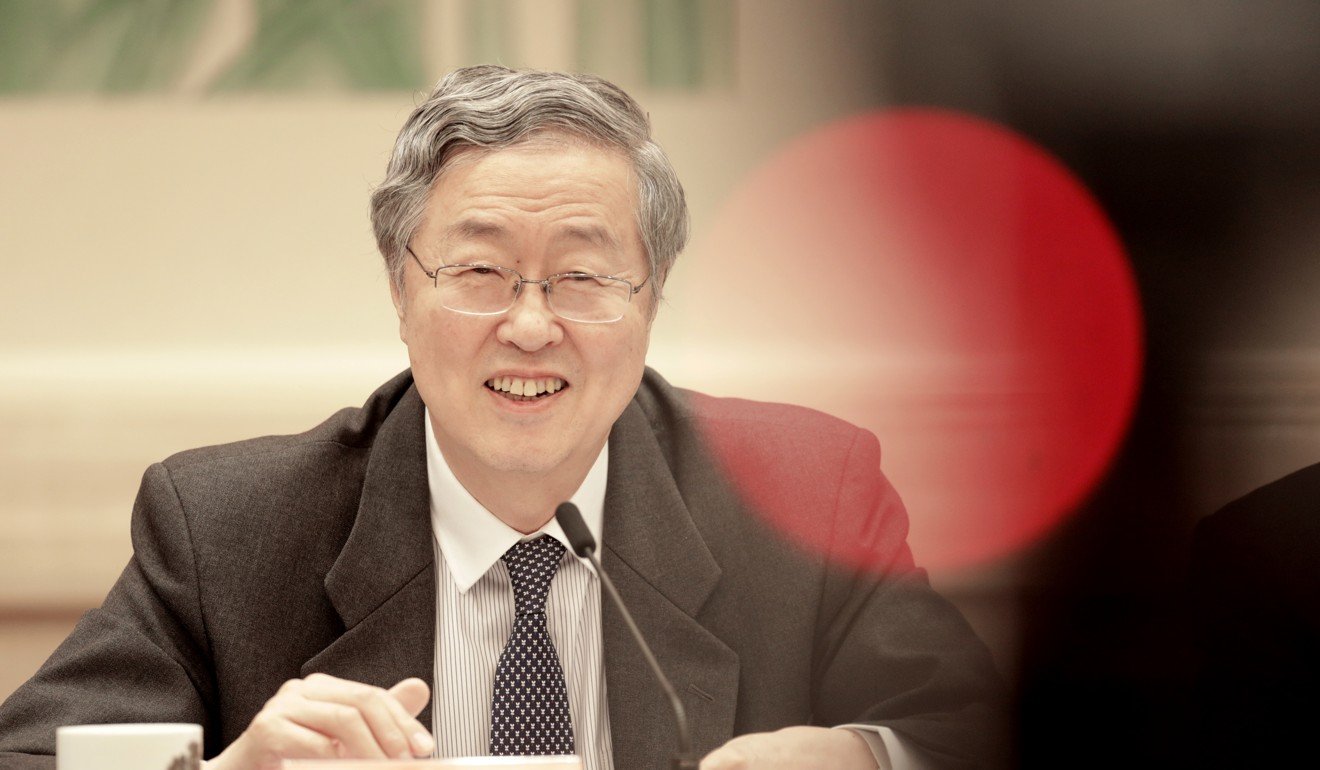
Liberal market reformer set to be named as China’s next central bank governor
Appointment of banking regulator to key role would boost confidence that the shrinking reform camp will still be able to influence policy

China is likely to name Guo Shuqing, a key figure in China’s market reform camp as the next central bank governor, two independent sources have told the South China Morning Post.
Guo, the current chairman of the China Banking Regulatory Commission, is currently ahead of the other candidates for the post – including Jiang Chaoliang, the Hubei party secretary; Yi Gang, a deputy governor at the People’s Bank of China and Liu Shiyu, the chairman of China Securities Regulatory Commission – said one source, who declined to be named.
If the appointment of Guo, 61, who holds similar liberal views to the retiring governor Zhou Xiaochuan, is confirmed in the coming weeks, it will ensure the presence of a well-known market believer in President Xi Jinping’s economic team – a development that could help to shore up confidence that Xi is not totally sidelining market liberalisation.
“Xi once told Guo at an internal meeting that ‘China’s financial reform is upon you’,” a second source said. However, the source added that he was not present at the meeting but he had heard about it from someone who was there.
However, like other Chinese personnel reshuffles, the dust will not settle until the last minute. There have been multiple reports about Zhou’s retirement in previous years that have proved wrong.
At a delegation meeting on Thursday, Zhou, who has been China’s central bank governor since late 2002, declined to give any clues of his successor. When asked who would replace him, he replied, “Who do you think?”
Jiang declined to answer questions on the topic at meeting on the sidelines of the 19th Communist Party congress, saying: “I am the party secretary of Hubei. If you want to ask anything about finance, please ask the finance people.”
Rumours about the possibility that Guo would replace Zhou has been around for at least a decade and he was questioned about the possibility during the 17th party congress in 2007.
The speculation is a sign of market faith in a man who has been known for his pro-market views since the 1980s and a key figure in a “reformer” camp that is shrinking in Beijing’s inner decision-making circles.

Guo, who spent a year at Oxford University as a visiting scholar from July 1986, is one of a small group of senior cadres who can speak directly with their international peers, a skill that will be valuable for the position as China, currently the world’s second biggest economy, becomes a mighty player in the international monetary community.
“Guo is one of the most fluent English speakers among officials of his generation, which would make him an effective communicator when facing international markets, ” said a source in Beijing who has knowledge of the matter.
The linguistic skill, however, is just a bonus on top of Guo’s other credentials.
Guo was a deputy central bank governor and the chief of State Administration of Foreign Exchange (Safe), the agency that runs China’s capital control and foreign exchange reserves, from 2001 to 2005.
He became chairman of China Construction Bank in 2005 after his predecessor was toppled for graft. In that role he restarted the bank’s joint-stock restructuring and floated its shares in Hong Kong and Shanghai.
In 2011, he became chairman of the China Securities Regulatory Commission (CSRC), the stock market regulator, and launched many reform measures that dazzled market watchers.
Since then, Guo’s career path has been similar to the one followed by Zhou, who also worked at Safe, China Construction Bank and the CSRC before taking over at the central bank in 2002.
Guo was widely tipped to succeed Zhou in 2012, and might have done so had standard procedure been followed and Zhou, then aged 64, had retired at the end of his second five-year term.

But Zhou stayed after he secured an honorary title that effectively extended his retirement age to 70 from 65, and Guo became the governor of Shandong, a province with a population of nearly 100 million and a GDP of about US$1 trillion.
Guo stayed there until in early this year when he returned to Beijing as chairman of the banking regulator. He quickly launched a “regulatory storm” in the industry in response to Xi’s call to tackle financial risk.
“Guo is a man with great vision and a strong sense of mission,” Gary Liu, president of China Financial Reform Institute, a Shanghai-based research group, said.
Born in Inner Mongolia, Guo studied philosophy at the prestigious Nankai University in Tianjin and studied socialism in the Marxism and Leninism Department at the Chinese Academy of Social Sciences in Beijing in the 1980s.
He later joined a small team that was studying how to dismantle China’s command economic system in favour of a market-based one.
The office was later disbanded but its key members continued to climb China’s bureaucratic ladder, becoming Beijing’s most capable hands on economic, financial and monetary matters, and were able to weave their early views into state policies that fundamentally shaped the economic landscape.
Their intellectual leader is Wu Jinglian, an 87-year-old renowned economist, who advised China’s top leadership, while Zhou became the most senior-ranking government official and the most influential member of the group.
In an interview last week with Chinese business magazine Caijing, Zhou reviewed China’s decades of opening up and listed a number of tasks that must be accomplished over the coming years, including a free exchange rate and the lifting of capital account controls.
The published interview, which was approved by the central bank, was accompanied by an old picture of Zhou with Wu and Guo.

“Both [Zhou and Guo] have a liberal streak in their thinking and both understand market economics very well,” John Wong, a professorial fellow at the East Asian Institute at the National University of Singapore, said.
Guo’s experiences in different posts as a scholar, a banker, a provincial governor and a regulator had made him “politically very shrewd”, he said, another critical skill that is needed to navigate the vested interests within the government and to seek compromise and consensus.
Unlike the US Federal Reserve or the European Central Bank, the Chinese central bank is a unit within the cabinet and has to persuade state leaders and other ministries to support major policy moves.
In the latest institutional move, for instance, China decided to create a financial development and stability committee that is likely to be headed by a vice-premier. The central bank will have an office to run the day-to-day affairs of the agency.
“Guo is of the same vein [as Zhou in understanding what China needs],” Fraser Howie, director of Newedge Financial in Singapore, said.
“The problem though is, as Zhou states, too much interference and fear from other ministries.”